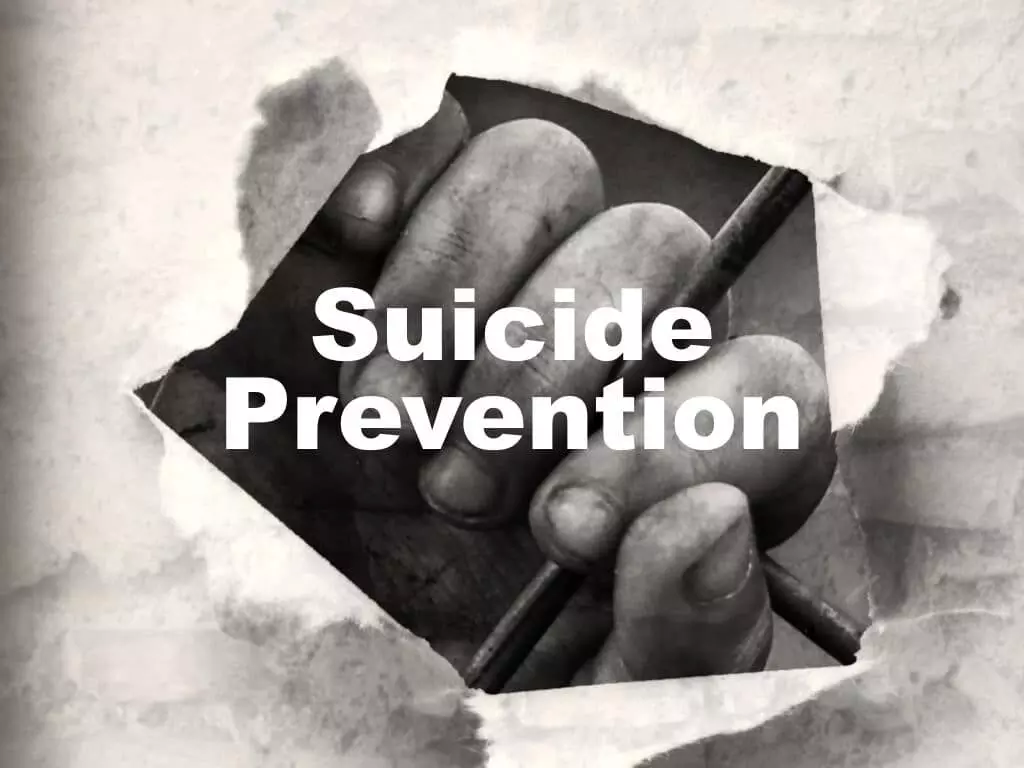Watch out for signs: Constant communication, prompt counselling can prevent suicides
More than eight lakh people die by suicide every year globally. For each suicide, there are more than 20 suicide attempts
By Sulogna Mehta
Hyderabad: On the occasion of World Suicide Prevention Day on September 10, consider these statistics provided by the World Health Organisation (WHO) and the National Crime Records Bureau (NCRB) in India.
More than eight lakh people die by suicide every year globally. For each suicide, there are more than 20 suicide attempts. Suicide is the second leading cause of death for people in the age bracket of 10 years to 34 years and the fourth leading cause of death for people aged between 35 and 54.
As per NCRB data, in 2021 there had been 12 suicides in India per lakh population, which has steadily increased from 9.9 in 2017 to 10.2 in 2018 and again from 10.4 in 2019 to 11.3 in 2020. Although a suicide attempt is no longer considered a criminal offence, it is an ongoing pandemic and the incidences are escalating every year.
Mental health experts point out that suicide is preventable by creating greater societal awareness, staying alert about the subtle signs, reaching out to the stressed person who contemplates suicide and of course seeking professional help from counsellors and psychiatrists.
A psychiatrist at Tata Manipal Hospital, Dr Vidit Singh, says, “The Mental Health Care Act 2017 states how a person who has attempted suicide is under a tremendous amount of stress, so much so to desire to kill the self. Every day, everything we do is to sustain our lives, to survive, to continue living. We eat, we live inside a house and we jump at the touch of something hot or sharp because protective mechanisms are ingrained in our very fabric. Despite all this, when a person wants to kill oneself, it indicates there is something terribly wrong with their psyche to be able to turn off all protective mechanisms and push the person towards destroying oneself. This is where the importance of mental health comes to the fore.”
Who are more prone to commit suicide?
“Adverse life conditions during childhood and mental trauma due to poverty, tumultuous relationships with close family members or love affairs, loss of loved ones or other perceived socio-economical losses and excessive stress can precipitate mental health conditions and eventually lead to suicide. Depression is the most common cause of suicide, but not the only one. Other mental health conditions may lead to it. Acute stress reaction coupled with impulsivity can also suddenly and unexpectedly drive a person to suicide,” explains Dr Vidit.
Warning signs to watch out for suicidal persons
One may be contemplating suicide if the person has slowly stopped talking to others or talks much less unlike before, stays lost and aloof, has been giving away his stuff as if he doesn’t wish to use it anymore, starts talking about his will or has been feeling very weak and talks about his negative feelings more than anything else, involving themes of hopelessness, worthlessness, helplessness and guilt.
“We sometimes miss these subtle changes in the behaviour of our loved ones or tend to ignore them because we feel it is temporary and will get better with time but what if time is something that is running out for that person? Promoting mental health awareness is required because mental health conditions are silent killers and do not come with fevers, bleeding wounds or broken bones. A broken mind and a bleeding heart may not be as easy to detect but can kill a person with equal brute force,” adds Dr Vidit.
Suicide prevention methods
Dr Koganti Charan Teja, a neuropsychiatrist at KIMS and associate professor at VRK Medical College, says, “We need to understand that suicide is preventable by creating awareness at individual, community, national and global levels.” The doctor gives certain tips about the prevention of suicide.
Firstly, a well-established suicide prevention helpline that works round-the-clock as an emergency service, operated by qualified mental health professionals, is important. Active outreach to the patients or follow-up after the call on a weekly basis to check on their emotional state should be undertaken.
Secondly, open conversations about suicidal intent and death wishes have to be normalised as most people get uncomfortable while even using the word ‘suicide.’ There is still a stigma associated with it and therefore people always check on their own by addressing the same. In fact, some people mistakenly think that using the word ‘suicide’ might trigger a person.
Then, at the school level, mental health awareness campaigns, skits, role plays etc. have to be done. These activities can center on how to approach someone if they are actively thinking of suicide and how others should respond to the same.
Another way to prevent suicides is by mental health facilities and super-speciality hospitals reaching out to patients who get lost for follow-ups for mental health disorders.
We should educate our citizens about mental health first aid, which enables them to protect themselves or others in case of a crisis and does not impulsively result in suicide.
Do not dismiss anyone who voices suicidal intent just because it is repetitive and the person sometimes threatens to commit suicide. If you come across someone who voices such intentions, listen to them, and let them open up but do not judge or discriminate. Respond with empathy and understanding instead of being upset or angry.
And lastly, get professional help right away without delaying or leaving them alone as your action can save a human life from getting extinguished.
Helpline Numbers
Contact the following helplines for support and counselling if you or anyone you know is struggling with suicidal thoughts: AASRA suicide prevention and counselling can be reached at 9820466726. They offer help in English and Hindi languages. Roshni Trust based in Telangana can be reached through 040-66202000 and 040-66202001. Sevakendram, a health information helpline can be reached by dialling 104.